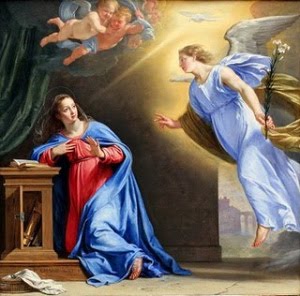Cardinal Antonio Cañizares Llovera, the prefect of the Congregation for Divine Worship and the Discipline of the Sacraments, blasted Spain’s abortion laws during a July 20 lecture in Madrid. Referring to the 47 million surgicial abortions that take place annually, Cardinal Cañizares called abortion “something unprecedented in the history of humanity.” Emphasizing the penalty of “immediate excommunication,” the cardinal added, “This practice is a crime, the killing of a human life, an innocent, weak and defenseless human being. Is there any other greater atrocity?”
Abortion is a “very grave” problem, he said, and humanity needs to be aware that the greatest crisis we are suffering is the “47 million legal abortions” that, according to the World Organization of Health, take place each year. “This is something unprecedented in the history of humanity,” the cardinal noted.
Regarding the question of the excommunication of health care workers who perform abortions, Cardinal Canizares reminded that there is such a thing as “immediate excommunication.” “This practice is a crime, the killing of a human life, an innocent, weak and defenseless human being. Is there any other greater atrocity?” he asked.
Thursday, July 23, 2009
Monday, July 6, 2009
Vatican newspaper praises French Protestant John Calvin
VATICAN CITY (AFP) — The Vatican newspaper Friday praised influential French Protestant John Calvin, a critic of the Roman Catholic Church, hailing him an "extraordinary" figure. The Osservatore Romano, on the 500th anniversary of Calvin's birth, said it recognised the theologian as a Christian who had a major impact on European life.
"Considering the strength of arguments against him, we think it necessary to point out that Calvin is a Christian," the daily paper said of the man who played a major role in the Protestant Reformation of the 16th century. The paper ranked Calvin alongside 18th century French philosopher Jean-Jacques Rousseau for his influence on modern European life. The pair were the "only two men who influenced some Europeans to change course and were strong enough to lead them in a new direction," it wrote. The "mark left by the reformer was deep," the Osservatore Romano continued, praising Calvinism as a "ingenious creation" which resisted "all the changes or revolutions of modern life."
Calvin, who lived in the 16th century, broke with the Roman Catholic Church and became one of its most ardent critics and helped the Reformation to take root across Europe. He was a contemporary of the father of the Protestant Reformation, Martin Luther. Calvin's major work is The Institutes of the Christian Religion (1536) which advocates a strict form of Protestantism.
"Considering the strength of arguments against him, we think it necessary to point out that Calvin is a Christian," the daily paper said of the man who played a major role in the Protestant Reformation of the 16th century. The paper ranked Calvin alongside 18th century French philosopher Jean-Jacques Rousseau for his influence on modern European life. The pair were the "only two men who influenced some Europeans to change course and were strong enough to lead them in a new direction," it wrote. The "mark left by the reformer was deep," the Osservatore Romano continued, praising Calvinism as a "ingenious creation" which resisted "all the changes or revolutions of modern life."
Calvin, who lived in the 16th century, broke with the Roman Catholic Church and became one of its most ardent critics and helped the Reformation to take root across Europe. He was a contemporary of the father of the Protestant Reformation, Martin Luther. Calvin's major work is The Institutes of the Christian Religion (1536) which advocates a strict form of Protestantism.
Subscribe to:
Comments (Atom)









